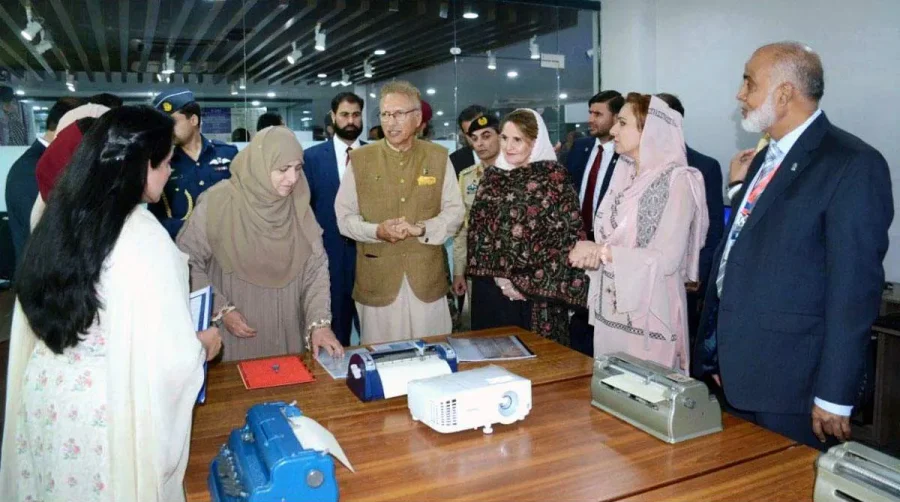President Dr Arif Alvi said on Monday that education, health, welfare and women empowerment were the most important factors for a proper growth of any society. He said this while visiting the department of special needs in the University of Management & Technology here. First Lady Samina Alvi also accompanied the president. Giving an example of China, the President said that China had made enormous progress through improving its education and health sectors. It was very unfortunate that there were almost more than 20 million out of school children in Pakistan and it was need of the hour to enroll them, he added.
He said it was highly important to promote the concept of inclusion in the society. “If we look around, almost every family has a child who was deprived of any one of the five basic senses”, he observed. Dr Arif Alvi said there was a need to change attitudes of the society towards differently-abled persons and jobs should be created to match their abilities. He said, “Time is coming when no nation can make progress without ensuring inclusiveness in its society.” He said, “Only 9 per cent of our FSC students go to universities and some 18 to 20 per cent students go up to intermediate level which are not good percentage at all.”
With rapid advancement in technology, the world was changing as there were a lot of mobile applications which were very helpful for people with disabilities, he said. He further said, “The country has a lot of potential, adding that it is of utmost importance for the country not to deviate from its priorities.” Dr Arif Alvi said that inflation was the biggest challenge and it was dire need to control it in the larger interest of people. Prof Dr Abdul Hameed, Ibrahim Hassan Murad also spoke on the occasion. Later, President Dr Arif Alvi and First Lady Samina Alvi witnessed different projects of the differently-abled students and also interacted with them.
He called upon all stakeholders to ensure that all school-going children were admitted to schools and all intermediate passing students were admitted to higher education institutions (HEIs). He added that country’s rate of primary enrolment was only 68 per cent compared to other regional countries’ rate of over 98pc, whereas higher education enrolment was only nine per cent compared to around 60 per cent of other regional countries.










